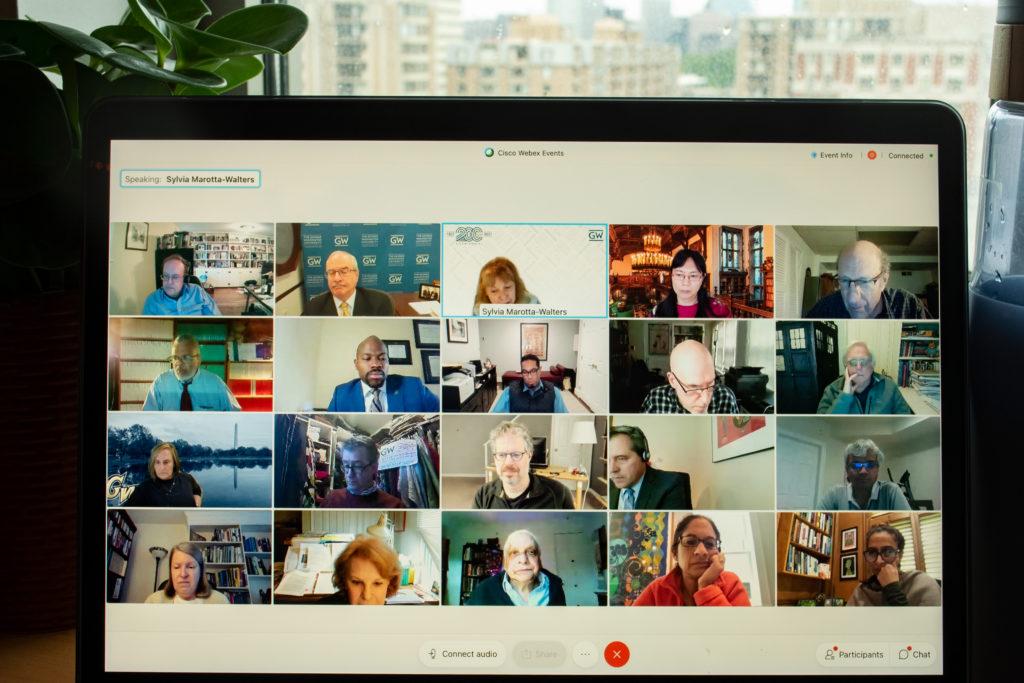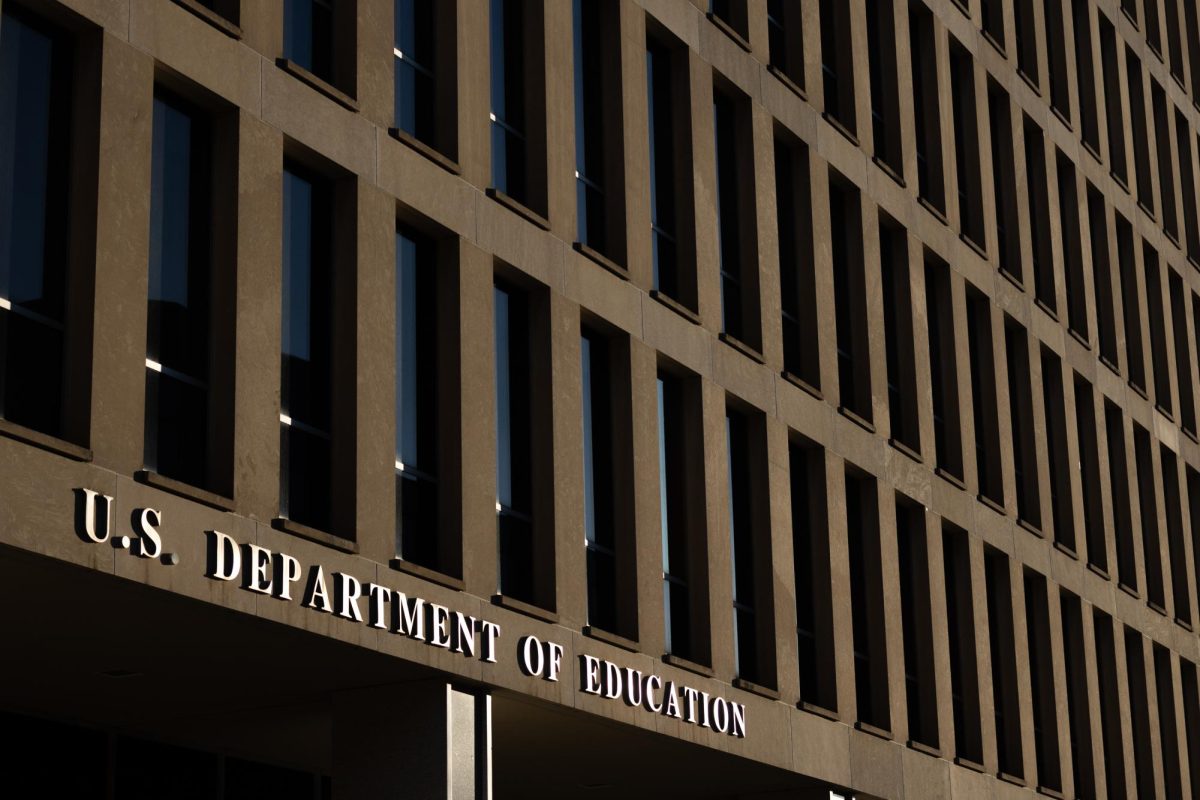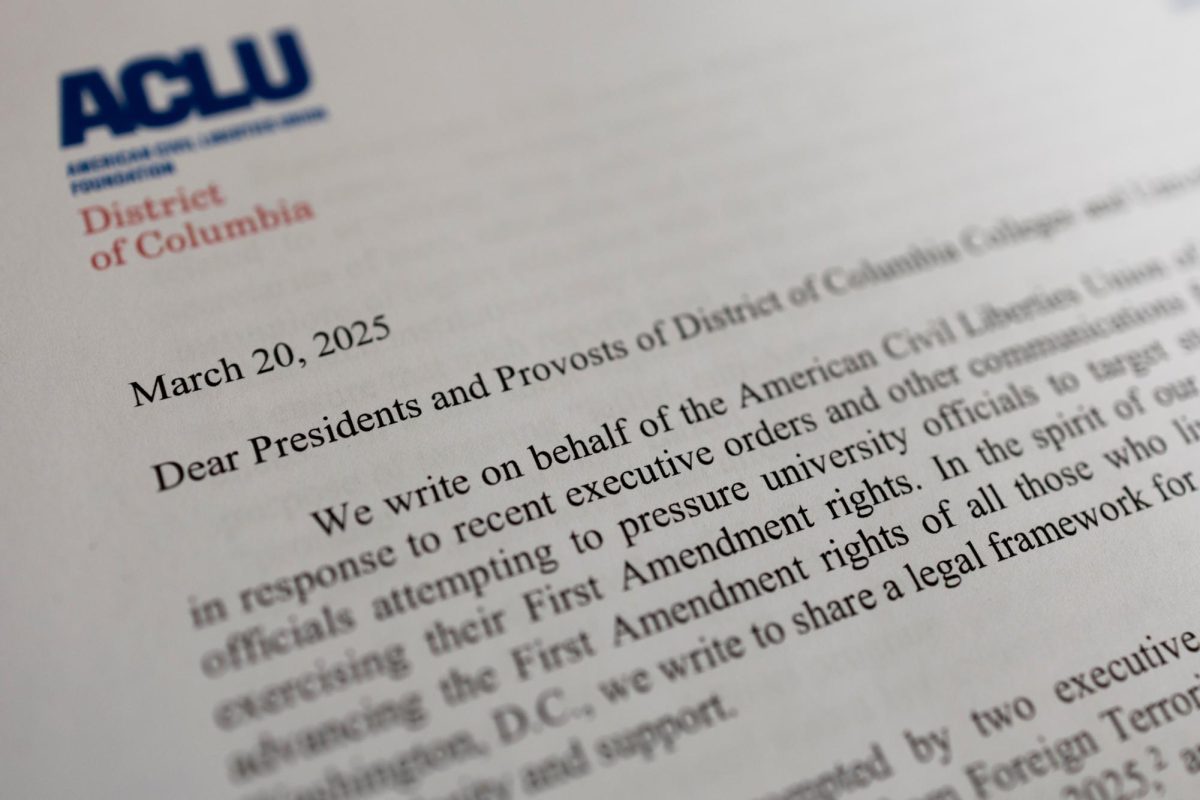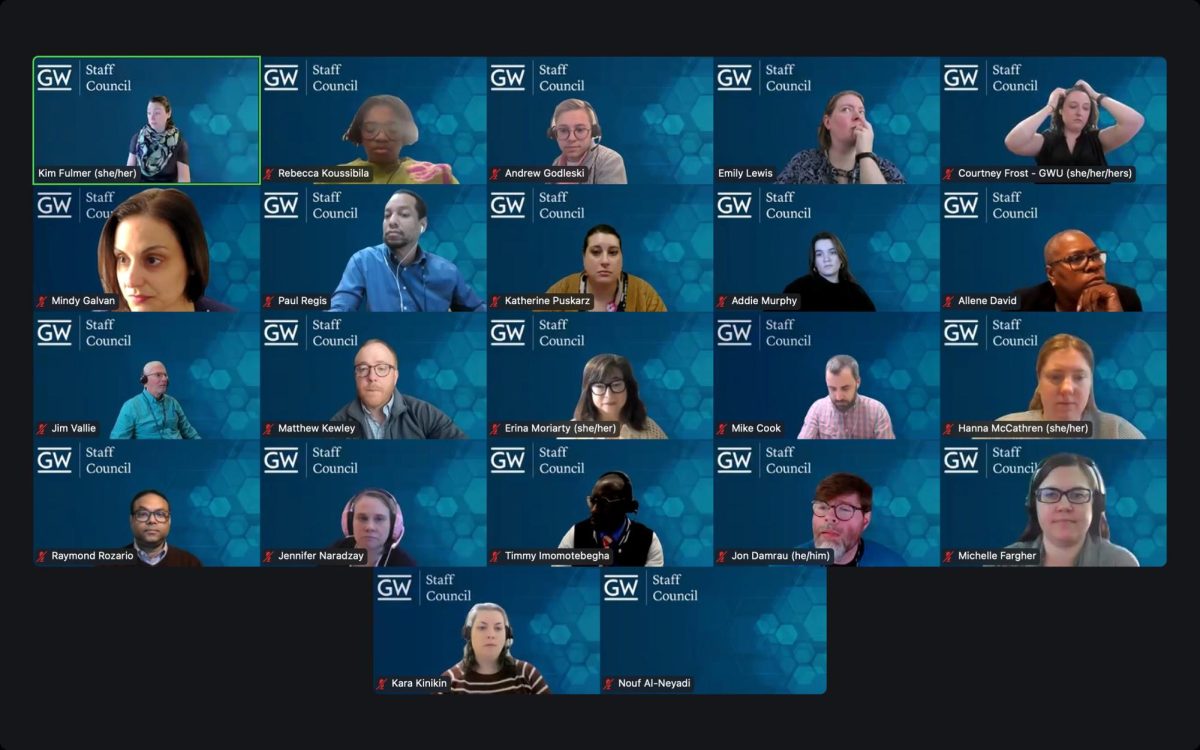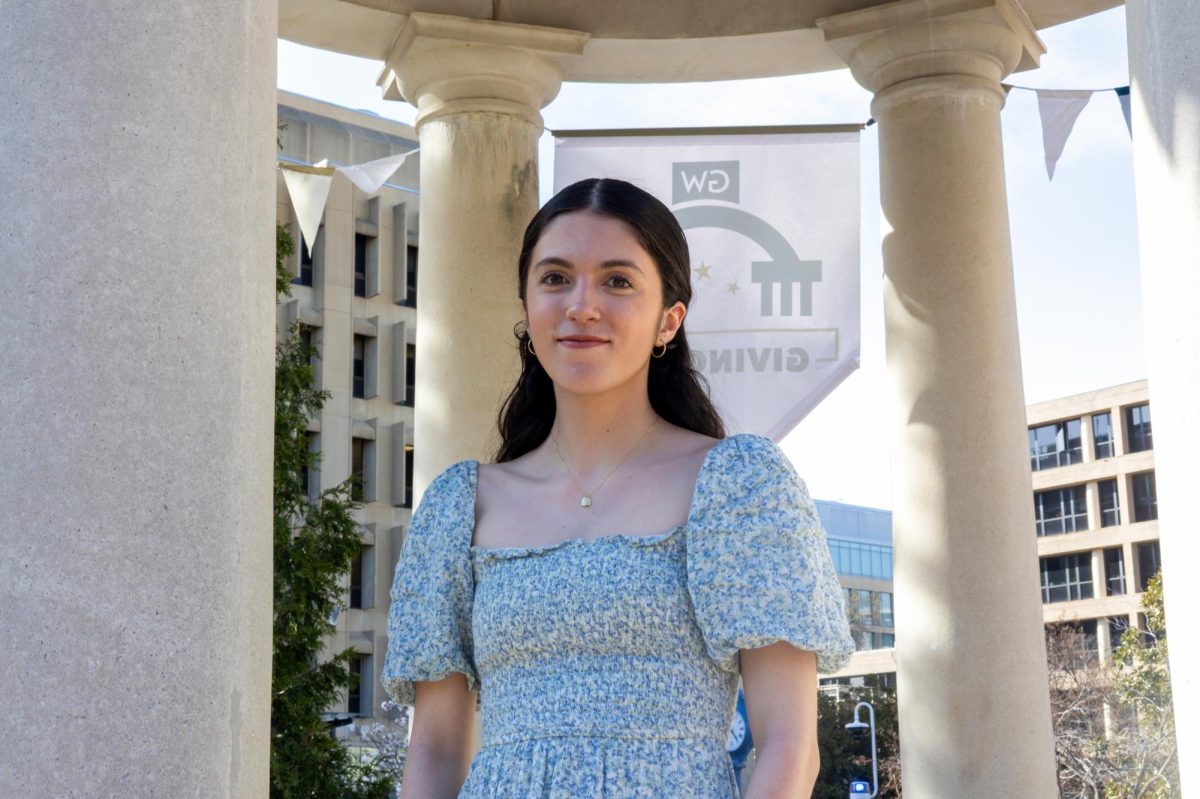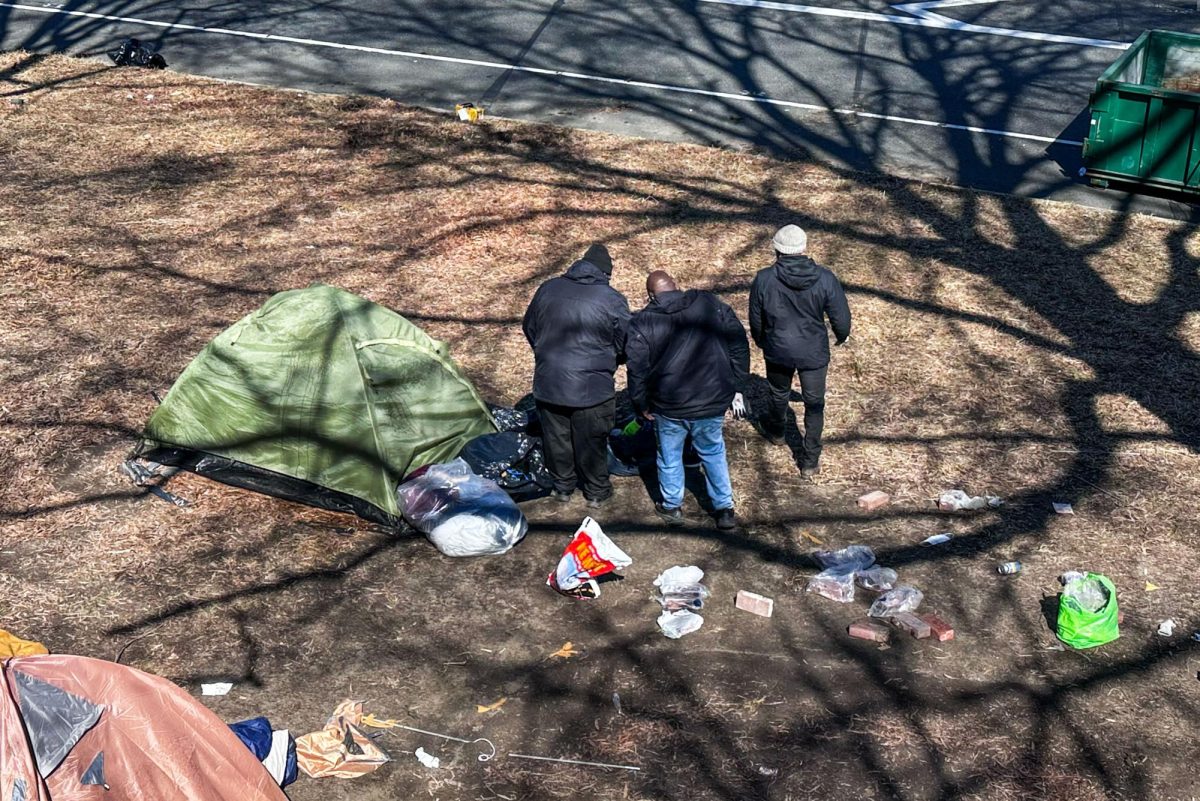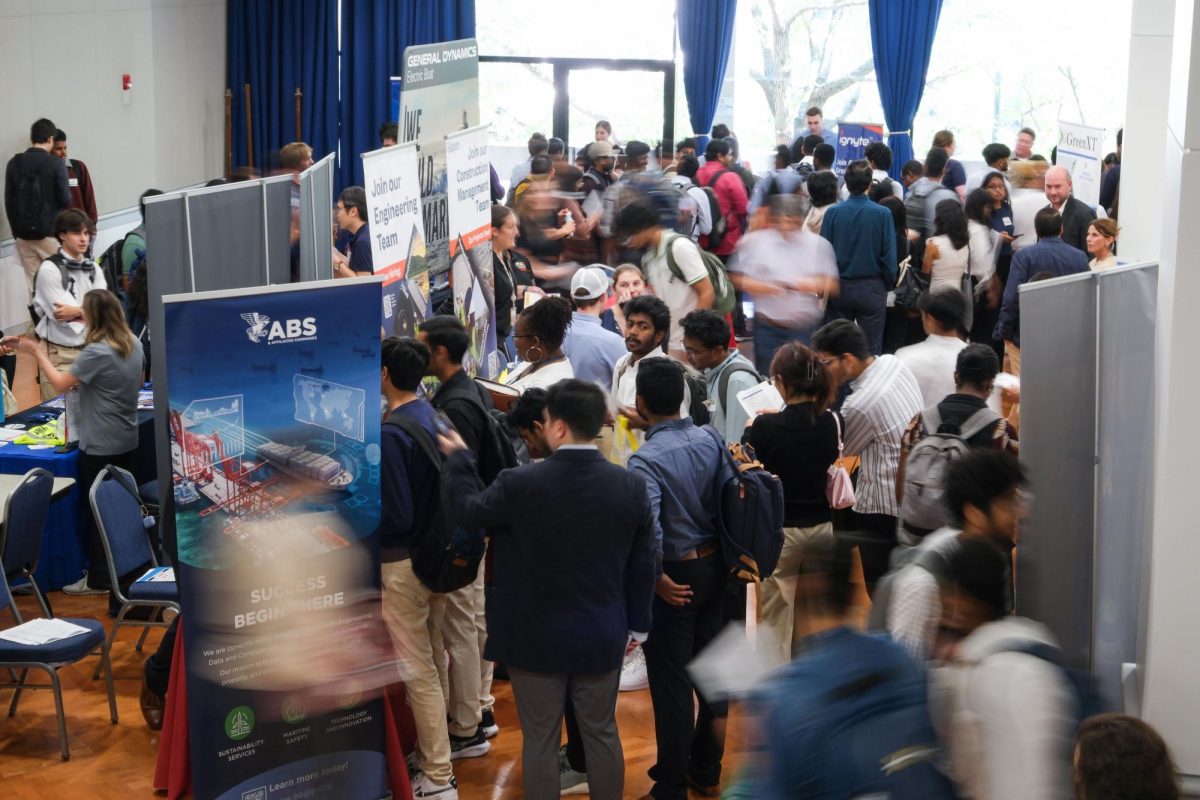The Faculty Senate passed a resolution Friday permitting online voting at regular or special Faculty Assembly meetings.
The resolution states that members of the assembly, which is open to all faculty with full-time faculty serving as voting members, may be considered “present” and therefore qualified to vote if they’re virtually in attendance at a meeting permitted to be held online. The vote responds to concerns raised at the last assembly meeting in November when faculty needed to suspend a rule that only permitted voting rights if members attended the meeting in person.
Edward Swaine, the co-chair of the ethics and academic freedoms committee who introduced the resolution, said the operational component of the resolution concerns those who are virtually present rather than alternate methods of voting, like a mail-in system. He said the resolution is in “no way” inconsistent with the senate’s ban on proxy voting methods and simply clarifies who’s considered “present” to cast their votes virtually at assembly meetings.
“The predicate for this to have significance is when virtual attendance is permitted,” he said. “At such a meeting where the rules of the meeting are that it’s being conducted virtually, this would enable voting to take place and to be done virtually in lockstep with that.”
The senate amended the original resolution to remove the word “electronic” from the legislation’s title to avoid confusion about the resolution’s meaning. Senators almost unanimously voted to adopt the amended resolution, with only one opposed.
Officials also provided several updates related to the University’s operations coming out of the COVID-19 pandemic
Koren Bedeau, the senior associate provost for special projects, said officials feel more confident in moving forward with a full fall reopening plan that would assign classroom spaces to pre-pandemic capacity because of the vaccine rollout and updated recommendations from medical and public health experts. She said officials will also maintain a contingency plan that considers social distancing on campus if administrators need to “pivot” in that direction this fall.
“We’ll continue to share next week more about actually which spaces are being assigned and having scheduling discussions with folks in the schools in the college,” she said.
University President Thomas LeBlanc has repeatedly said that officials plan for the University to be “in person to the fullest extent possible” this fall.
LeBlanc said he met with Mayor Murial Bowser about two weeks ago and updated her on GW’s fall reopening plans. He said Bowser believes the University will help keep the District safe next fall.
“We will respect the D.C. guidelines, and the D.C. guidelines are rapidly improving toward more open,” he said. “What is true today is likely to be more restrictive than what we’ll encounter in August, but we don’t have any way of knowing what the guidelines will be at that point.”
Members of the post-COVID academic innovation task force provided an update to the senate on their findings of lessons the GW community has learned during the pandemic. They said the task force found that the community has adapted to online instruction, and the University needs to continue to provide technological support to students, faculty and staff even after in-person instruction resumes.
Jason Zara, a co-chair on the task force and a professor of biomedical engineering, said the task force split into four working subgroups to focus on different “constituencies,” like faculty, academic staff support, undergraduate education and graduate and professional education.
“What we’re really driving toward is focusing the committee’s suggestions on ways to enable academic innovation, not to prescribe or require particular innovations,” he said.
Zara said the undergraduate education subgroup found that students appreciated having recordings of class during online instruction, and the University’s location in the country’s capital remains “one of its strongest assets.” He said students identified the University’s COVID-19 testing system as a model of success for “customer service” that officials should examine for future efforts on University-wide initiatives and projects.
“Maybe we can look as a University when we implement new practices or other operations of customer service initiatives, look at the COVID testing as a best practice of how we did put that together and how did we implement it so successfully,” he said.
Zara said graduate students supported similar recommendations as undergraduates, like class recordings, and encouraged greater accessibility to the University’s physical and online spaces, like ensuring virtual access to professors even after the end of online instruction.
Zara said faculty have appreciated flexibility in their schedules for online classes, but many said they cannot continue to work at the levels that the pandemic has demanded. He said they have recommended adjustments to teaching loads that will allow faculty to “scale back” when in-person classes return.
He said all subgroups, especially faculty, advocated for officials to provide as much technology and training as possible in the future, with support in information technology, assistive technology and logic and artificial intelligence.
“If we’re going to do anything virtually, we’ve got to do it very well and we need resources and training,” he said. “Staff need training, students need support and training and we need to ensure that we’re ready to do this well.”
Zara said each subgroup of the task force will finalize and submit its findings to four senate committees for feedback and comments this week. He said the committee feedback will be added as appendices to the final report that the task force will submit to Provost Brian Blake during the final week of May.
During his enrollment updates, Blake said the University has achieved its total deposit targets for the upcoming academic year, and the academic profile of the incoming class “remains strong.” He said the waitlist remains “healthy,” and graduate applications and admissions have also risen, even for international students.
“Basically, we’re seeing great numbers right now, and we’ll keep moving along those lines,” he said.
The senate unanimously confirmed appointments to the University committees and senate standing committees and approved the senate’s calendar for the upcoming term.
Arthur Wilson, the chair of the senate’s executive committee, said six standing senate committees will meet over the summer to discuss issues related to a potential return to in-person or hybrid instruction for the fall. He said the senate is preparing to hold additional regular meetings over the summer if necessary and will recommend specific dates to senators in the near future.
“If it turns out that there’s no need, we can cancel the meetings,” he said. “It is much easier to cancel a meeting that was scheduled then than to schedule a new meeting when half of the senate is busy on vacation or something.”
Members of the appointments, salaries and promotion policies committee’s diversity, equity and inclusion subcommittee also presented their findings of the composition and diversity of the University’s full-time faculty.


